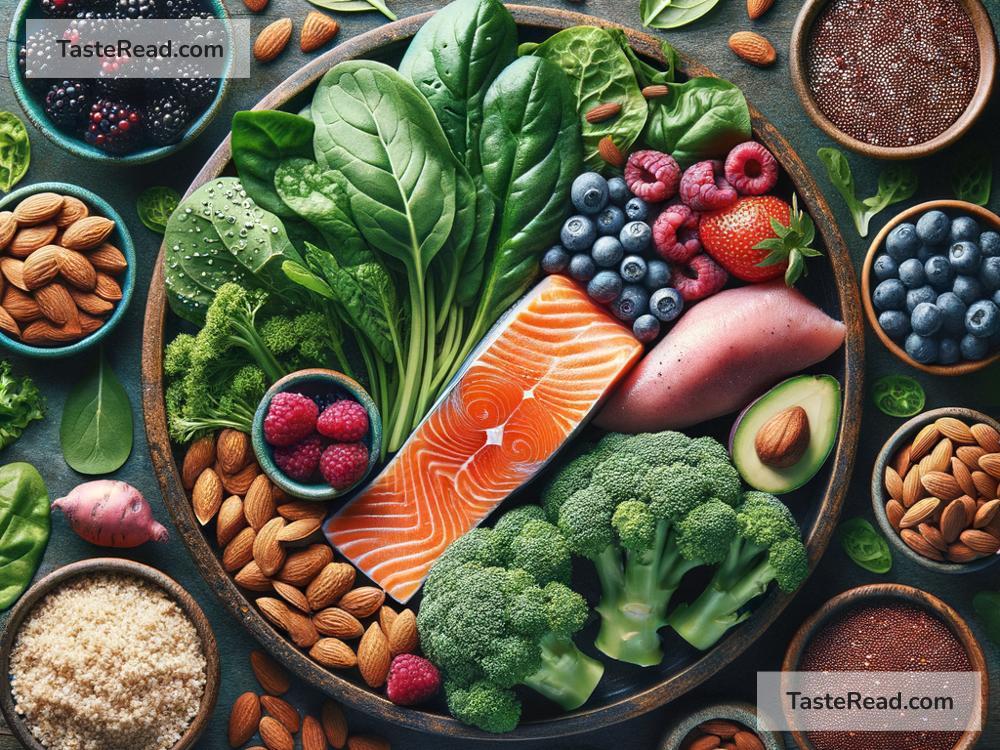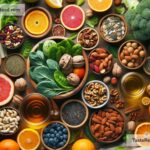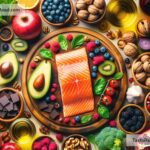Foods for Enhancing Cancer Recovery: Nourish Your Body During Healing
Cancer recovery is a journey that can challenge both the body and the mind. While treatments such as chemotherapy, radiation, and surgery are essential to battling the disease, proper nutrition plays a crucial role in helping your body heal. The food you eat can support your immune system, provide strength, and improve overall recovery. In this article, we’ll explore simple and nutritious foods that can enhance your cancer recovery.
The Importance of Nutrition in Cancer Recovery
Cancer treatments can weaken the body, leading to fatigue, a suppressed immune system, and side effects like nausea or weight loss. Eating nourishing foods gives your body the fuel it needs to repair damaged tissues, fight infections, and regain strength. While no single food can cure cancer, a balanced diet rich in key nutrients can improve your quality of life during recovery and promote healing.
Foods for Enhancing Cancer Recovery
1. Fruits and Vegetables – Nature’s Powerhouses
Fruits and vegetables are packed with vitamins, minerals, antioxidants, and fiber. These nutrients help boost your immune system and protect your cells from damage.
- Berries (like blueberries, strawberries, and raspberries): Rich in antioxidants, berries help reduce inflammation and support healthy cell function.
- Dark, leafy greens (such as spinach, kale, and Swiss chard): Loaded with vitamins A, C, and E, these greens strengthen immunity and supply iron for energy.
- Cruciferous vegetables (like broccoli, cauliflower, and Brussels sprouts): These contain compounds that may help protect cells and reduce the risk of cancer returning.
Including a variety of colorful produce ensures that you’re getting a wide range of nutrients to aid in recovery.
2. Protein for Strength and Repair
Protein is essential for repairing cells and tissues damaged during cancer treatment. It also helps rebuild muscle, particularly if you’ve experienced weight loss.
- Lean meats (like chicken and turkey): These provide high-quality protein to support healing.
- Fish (especially fatty fish like salmon and mackerel): Rich in omega-3 fatty acids, fish helps reduce inflammation and supports overall health.
- Legumes (such as beans, lentils, and chickpeas): Plant-based protein sources that are also high in fiber and iron.
- Eggs: Easy to prepare and packed with protein, eggs are ideal for boosting energy and maintaining strength.
If you struggle to eat enough during treatment, protein shakes or smoothies can be a good way to increase your intake.
3. Whole Grains – Energy for the Journey
Whole grains provide complex carbohydrates, fiber, and essential nutrients to keep your energy levels up.
- Brown rice: A great source of energy, plus it’s gentle on the stomach.
- Oats: High in fiber, oats can help regulate digestion, especially if treatments have caused changes in your bowel habits.
- Quinoa: A nutrient-packed grain that’s also rich in protein.
- Whole-grain bread and pasta: These can be a more satisfying and nutritious option compared to refined products.
Whole grains provide sustained energy so you can manage fatigue and feel more active during recovery.
4. Healthy Fats – Fuel for Your Body
Healthy fats are important for energy, cell repair, and reducing inflammation.
- Avocados: Full of healthy monounsaturated fats and easy on the stomach.
- Nuts and seeds (like almonds, walnuts, chia seeds, and flaxseeds): These provide omega-3 fatty acids, protein, and fiber.
- Olive oil: A heart-healthy fat for cooking and salads.
Avoid trans fats and processed oils, which can cause inflammation and aren’t helpful for recovery.
5. Hydration – Drink Enough Water
Staying hydrated is key to cancer recovery, especially if treatment causes diarrhea, vomiting, or increased sweating. Dehydration can lead to fatigue and make it harder for your body to heal.
Water is the best choice, but you can also try:
– Herbal teas (like ginger tea, which helps reduce nausea).
– Coconut water (for electrolytes).
– Clear soups and broths.
If plain water feels boring, add a slice of lemon or cucumber for flavor without sugar.
6. Probiotic Foods – Support Gut Health
Cancer treatments can sometimes upset your digestive system. Eating foods with probiotics (healthy bacteria) helps support gut health and improve digestion.
- Yogurt (plain and unsweetened): A natural source of probiotics.
- Kefir: A fermented drink rich in beneficial bacteria.
- Fermented vegetables (like sauerkraut and kimchi): These promote a healthy gut microbiome.
Foods to Avoid During Cancer Recovery
Just as certain foods can help your recovery, other foods can slow it down or cause discomfort. Try to limit or avoid:
– Processed and sugary foods: They offer little nutrition and can contribute to inflammation.
– Greasy and fried foods: These can be hard to digest, particularly if you have nausea.
– Excessive alcohol: It weakens your immune system and may interfere with medications.
A Word of Caution
Every person’s recovery journey is unique; what works for one individual may not work for another. If certain foods upset your stomach or worsen treatment side effects, talk to your healthcare provider or a dietitian. They can tailor recommendations to suit your specific needs.
Final Thoughts
Food can be a powerful ally during cancer recovery. By choosing nutrient-dense foods such as fruits, vegetables, lean protein, whole grains, healthy fats, and probiotics, you can help your body regain strength, rebuild damaged tissues, and enhance your overall healing process. Stay hydrated and listen to your body’s signals. Recovery may take time, but with the right nutrition, you’re giving yourself the best chance to heal and thrive.


